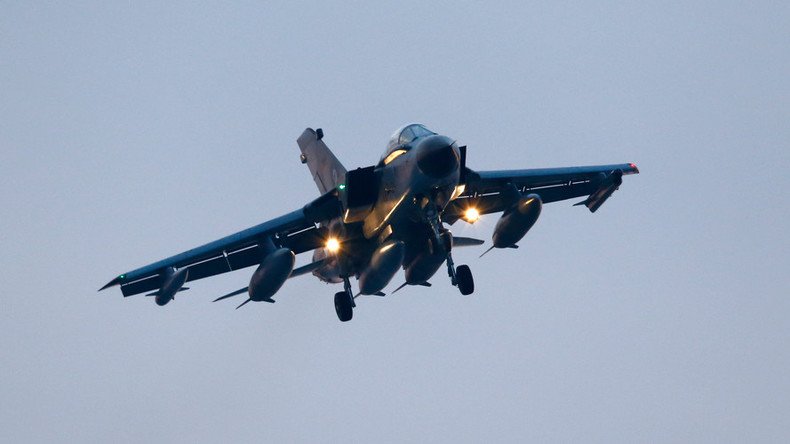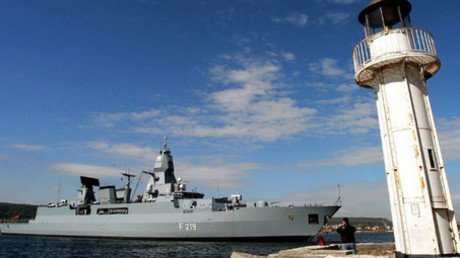Germany deploys 4 more jets in Turkey for anti-ISIS surveillance mission

Germany has sent four additional Tornado reconnaissance planes to Turkey to support the US-led coalition force in operations against Islamic State. The deployment is expected to be finalized with another two jets arriving next week.
Two Tornado jets were launched at 8:30am GMT from Jagel air base in northern Germany. Thirty minutes later two more planes took off from Buchel airbase in the west of the country. After an approximately four-hour flight and mid-air refueling, the planes landed at the NATO base Incirlik in Turkey, a Bundeswehr spokesman confirmed to the SWR.
The four jets will be joined by two other Tornado aircraft at the Turkish air base near the southern city of Adana next week – while the two jets previously deployed in Turkey will return back home.
“With the two other Tornado jets expected to arrive in Turkey on January 12, a total of six aircraft will be ready for the surveillance mission,” a Luftwaffe statement said.
According to Luftwaffe Brig. Gen. Andreas Schick, commander of German forces at Incirlik, flights will begin as early as Friday.
“Our goal is to reach full operational capability in mid-January,” he told Turkey’s Anadolu news agency.
The 134 million euro ($145 million) operation which launched in December saw the first two jets and an Airbus A400 cargo plane land at the Incirlik base in December. The two Tornado jets that were sent in December are scheduled to return to Germany in order to be replaced by more technologically advanced jets.
As part of its one-year mission Germany also sent a frigate to protect the French aircraft carrier Charles de Gaulle in the Mediterranean. On Monday, Germany sent a team of pilots, technicians, and reconnaissance specialists to the Incirlik base to begin their mission in Syria. The 111-personnel team now brings Germany’s presence up to 194 men and women.
The Bundestag has allocated a maximum of 1,200 soldiers to serve the mission that is limited to reconnaissance support operations. No military engagement on behalf of Germany is planned.
Instead Germany will contribute to the anti-ISIS battle by using RecceLite technology underneath its wings. Built by Israel’s Rafael Advanced Defense Systems, RecceLite is mounted in a container under the fuselage of the aircraft to provide high-resolution images from the action on the ground day and night.
Each such surveillance container has three camera systems: Two high-resolution electro-optical cameras, one telecamera for targets from high altitudes, and a panoramic camera with five lenses to capture images from horizon to horizon. The Tornado aircraft are also equipped with infrared cameras.
The RecceLite systems allows for surveillance missions any time of day and regardless of the weather conditions. Data captured is transmitted in real time to a ground station. The real-time airborne reconnaissance system designed for low and medium altitudes, suits the German developed deployment plan.
Squadron 33 commodore Holger Radmann told the Volksfreund daily that the jets would be flown at mid-altitudes several kilometers above the ground. Such cruising altitude should protect the Tornados from shoulder-aircraft missiles, which are typically used by the terrorist groups.
“The stakes are certainly not without its dangers, but we have taken all the planning measures,” Radmann said.
To protect the aircraft, the Tornado jets have systems that can suppress enemy radar and distract missiles. While risks remain that the vehicles might suffer technical defects, the commodore assured that the 30-year-old aircraft are in a “excellent technical condition.”
Shortly before the Bundestag allowed the deployment, a defense Committee report said that only 29 of the country’s 93 jets were ready for use.
The decision to more actively engage Islamic State (IS, formerly ISIS/ISIL) in Syria followed an appeal from France which came after the November 13 terror attacks in Paris. Until now, Germany has provided only logistical and technical assistance to the international alliance fighting against IS.













